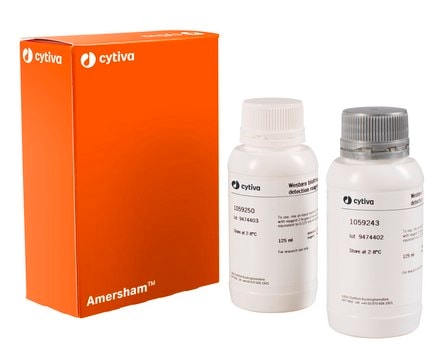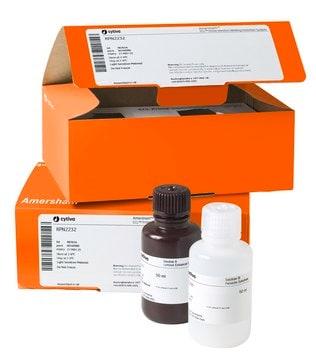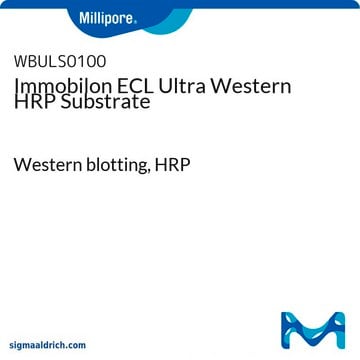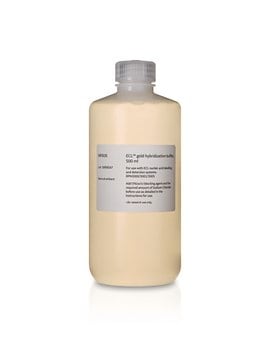GERPN3004
ECL™ Detection Reagents
Cytiva RPN3004, pack of 1 ea
About This Item
Productos recomendados
envase
pack of 1 ea
fabricante / nombre comercial
Cytiva RPN3004
temp. de almacenamiento
2-8°C
Categorías relacionadas
Descripción general
Based on the enhanced chemiluminescent reaction of luminol with horseradish peroxidase, ECL substrate can be used to detect probes which have been labelled either directly or indirectly with horseradish peroxidase. Rapid light output enables results to be achieved in 10 to 15 minutes. It is the substrate of choice for target amounts above 500 fg.
High sensitivity and fast results:
- Detects up to 10 to 12 ng of protein, which is ~10× more than colorimetric methods
- Optimized to use with Amersham Protran nitrocellulose (NC) membranes
- Delivers results in just a few minutes, then image using a CCD imager like the Amersham ImageQuant 800 or Amersham Hyperfilm ECL
Almacenamiento y estabilidad
Nota de análisis
Información legal
Producto relacionado
Código de clase de almacenamiento
12 - Non Combustible Liquids
Elija entre una de las versiones más recientes:
Certificados de análisis (COA)
It looks like we've run into a problem, but you can still download Certificates of Analysis from our Documentos section.
Si necesita más asistencia, póngase en contacto con Atención al cliente
¿Ya tiene este producto?
Encuentre la documentación para los productos que ha comprado recientemente en la Biblioteca de documentos.
Los clientes también vieron
Artículos
Background and protocols describing the various methods used by molecular biologists to detect samples of protein or nucleic acids bound to membranes.
Nuestro equipo de científicos tiene experiencia en todas las áreas de investigación: Ciencias de la vida, Ciencia de los materiales, Síntesis química, Cromatografía, Analítica y muchas otras.
Póngase en contacto con el Servicio técnico










